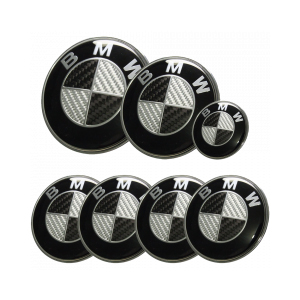Sep . 23, 2024 06:06 Back to list
oil seal for pump
Understanding Oil Seals for Pumps Importance, Types, and Maintenance
Oil seals are critical components in various mechanical systems, especially pumps, where they play a vital role in ensuring the efficient and safe operation of machinery. These seals are designed to retain lubricants and prevent the leakage of oils and fluids while simultaneously protecting the internal components of the pump from contaminants like dirt and moisture.
Importance of Oil Seals in Pumps
The primary function of an oil seal in a pump is to maintain the integrity of the lubricant within the system. Proper lubrication is crucial for reducing friction between moving parts, which in turn minimizes wear and extends the lifespan of the equipment. By preventing fluid leakage, oil seals help maintain operational efficiency and reduce the risk of environmental contamination. Moreover, they protect the internal components from external elements that could cause corrosion or damage.
Types of Oil Seals
Oil seals come in various designs and materials, each suited for specific applications. Here are some common types
1. Lip Seals These are the most common type used in pumps. The sealing lip creates a barrier that effectively prevents fluid from escaping and contaminants from entering. The material used can vary from rubber to polyurethane, depending on the operating conditions.
2. Double-Lip Seals These provide an additional layer of protection, featuring two sealing lips. They are particularly beneficial in environments exposed to extreme pressures or harsh conditions.
oil seal for pump

3. V-Ring Seals These are unique in that they attach directly to the rotating shaft. They are compact, versatile, and provide effective sealing in rotating and oscillating applications.
4. Mechanical Seals Although not traditional oil seals, they are often used in pump applications. Mechanical seals consist of two flat surfaces and can handle high pressure and temperatures, making them suitable for various industrial uses.
Selecting the Right Oil Seal
Choosing the right oil seal for a pump application involves considering several factors
- Operating Temperature Different materials have varying temperature resistance, so it’s essential to select a seal that can withstand the temperatures encountered in your pump. - Fluid Compatibility The oil seal material should be compatible with the type of lubricant or fluid used in the pump. - Pressure Conditions Depending on whether the application involves low or high pressure, the design of the seal may vary. - Speed of Operation Seals must be able to perform effectively at the rotational speeds of the pump.
Maintenance and Replacement
Regular maintenance of oil seals is crucial. Inspect seals for signs of wear, such as cracks or deformation. Any indications of fluid leakage or contamination should prompt immediate replacement. A well-maintained oil seal not only prolongs the lifespan of the pump but also ensures that it operates efficiently, reducing the risk of costly downtime or repairs.
In conclusion, oil seals are indispensable in the world of pumps, serving to retain lubricants, prevent leakage, and protect internal components. Understanding the types available, along with proper selection and maintenance, can significantly enhance the performance and reliability of pump systems in various industrial applications. Investing time in choosing and caring for oil seals pays off in the long run, offering efficient operation and cost savings.
-
Unlocking the Potential of Hydraulic Systems with Essential Sealing Solutions
NewsAug.06,2025
-
Unleash the Power of Your Hydraulic Systems with Our Premium Seal Kits
NewsAug.06,2025
-
Specialized Hydraulic Seal Kits for Breakers, Pistons, and Presses
NewsAug.06,2025
-
Revitalize Hydraulic Systems with Premium Repair and Seal Kits
NewsAug.06,2025
-
Fortify Your Cylinders with Premium Sealing Solutions
NewsAug.06,2025
-
Elevate Hydraulic System Reliability with Specialized Seal Kits
NewsAug.06,2025
-
TCN Oil Seal Metal Ring Reinforcement for Heavy Machinery
NewsJul.25,2025
Products categories
















